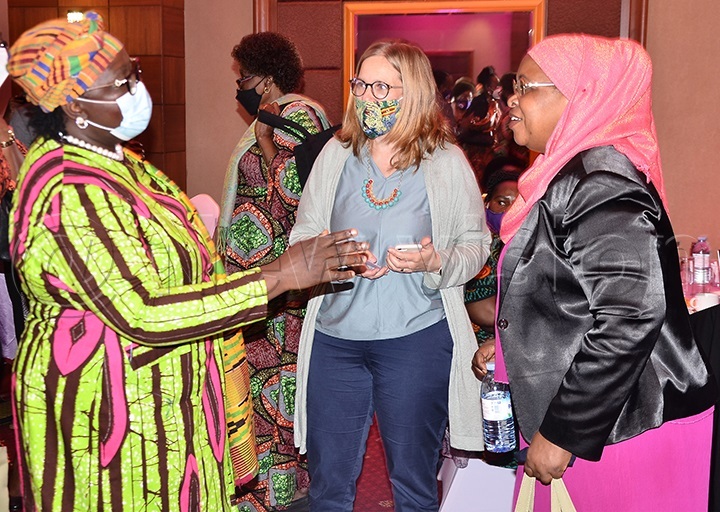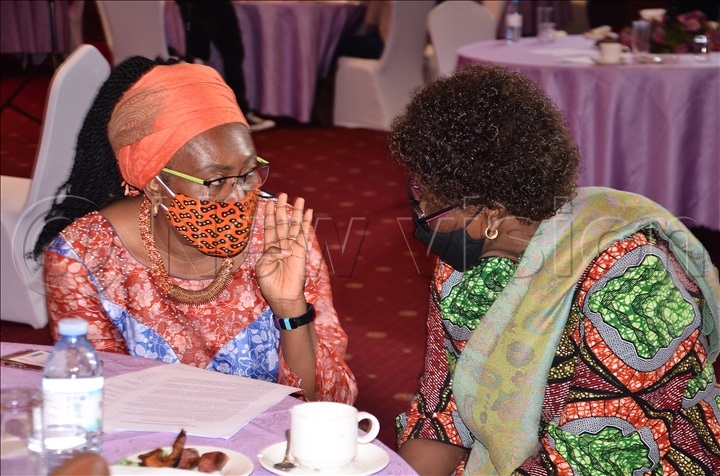3,000 women, youth to be trained to stop electoral violence
Oct 16, 2020
Hajjat Aisha Lubega, the deputy chairperson electoral commission who represented the chairperson, said that causes of violence during elections is the lack of information and discomfort plus ignorance of the law sometimes.

ELECTION WATCH | UWONET
Women activists under Uganda Women's Network (UWONET), are set to train and recruit 3,000 women and youth as election observers ahead of the 2020/21 general elections; to tame electoral violence.
The observers will be trained under the Women's Situation Room programme. The programme is a non-partisan monitoring structure that promotes active and direct contribution of women and youth to peaceful elections.
The body brings together different groups to promote stability during the pre-electoral, electoral and post-electoral phases by engaging youths, media, religious and eminent leaders.
The body also enlists eminent women in the host country to conduct negotiations with key parties to monitor and mitigate the violence that affects women both as voters and candidates.
Ritah Achiro, the executive director of UWONET during the launch of the programme, Thursday (October 15, 2020) said, "The Women's Situation Room is an innovative mechanism developed by Women's Rights Organisations and was first implemented in Liberia in West Africa, with the aim of turning the threat of electoral violence in Africa into an opportunity for creating sustainable democracy, peace and security."
It's mandate is drawn from UN Security Council Resolution 1325 that reaffirms the role of women's participation and involvement in all efforts to maintain and promote peace and security.
The 2021 Uganda Women's Situation Room is set out to work in 30 districts including; Gulu, Amuru, Kitgum, Koboko, Arua, Lamwo, Nwoya, Kampala, Wakiso, Masaka, Luwero, Mityana, Sembabule, Kassanda, Serere, Iganga, Jinja, Mbale, Katakwi, Bugiri, Soroti, Hoima, Mbarara, Isingiro, Kasese, Ntungamo, Kabale, Rukungiri, Kanungu and Rubanda.

The executive director of the Peace Centre, the Women Situation Room (WSR) secretariat, Helen Kezie-Nwoha, during the event said, the programme also aims at working through women and youth organisations to be able to reach to the grassroots.
"As a secretariat, we cannot say we are able to reach every woman. Many of these organizations have a grassroots network. We hope to identify more organizations including youth organisations to reach out to. We are hoping that when we have a consultation with youth leaders they will also be able to share with us and recommend another youth group that we may not know and we could work with," she said.
This is not the first time these election observers are being trained.
The WSR in the 2016 elections was hosted by the Forum for Women in Democracy (FOWODE), the Institute for Social Transformation (IST) and Isis-Women International Cross-Cultural Exchange; which rebranded to Women International Peace Centre.
It had a Steering Committee of eight women's organisations from the wider Women's Movement.
A team of 10 Ugandan Eminent Women were selected out of a shortlist of 25 women of influence and integrity; respected and acknowledged for their achievements and non-partisan.

They were joined and supported by five African Eminent Women from Ghana, Kenya, Liberia and Nigeria.
EC speaks out
Hajjat Aisha Lubega, the deputy chairperson electoral commission who represented the chairperson, said that causes of violence during elections is the lack of information and discomfort plus ignorance of the law sometimes.
She added that the electoral commission is taking trouble to understand and allow people to communicate what the problem is and also know the problem to diffuse any likely election violence.
Lubega noted by December 2018 they had the electoral roadmap for 2021 but were only disrupted by COVID-19 as they can carry out mass sensitizations as they hoped to but "we are committed and concerned about peace," she says.
The UNDP Resident Representative in Uganda, Elsie Attafuah, commended women for strengthening the electoral process and peace mechanism.
Attafuah added that working together during the electoral process will promote peace, stability and development. She also noted that just like a broom one stick will break when women come together, they are unbreakable.
